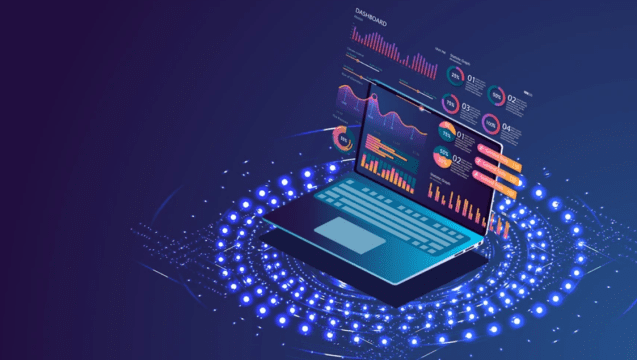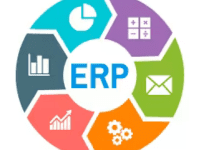Top Best 10 ERP Systems in 2023 Review – In today’s fast-paced business landscape, effective Enterprise Resource Planning (ERP) systems play a crucial role in streamlining operations, enhancing productivity, and driving growth. As we enter the year 2023, it’s important to stay updated on the top ERP systems available in the market.
Today we will explore the top 10 ERP systems that are making waves in 2023. From managing finances and supply chains to optimizing human resources and customer relations, these ERP systems have revolutionized the way businesses operate.
So, if you’re a business owner, manager, or someone who wants to stay updated with the latest technological advancements in the corporate world. In this article, we will review the top 10 ERP systems that have garnered significant attention and acclaim. Let’s dive in and explore these exceptional solutions.
Best 10 ERP Systems in 2023

1. Oracle NetSuite
Oracle NetSuite takes the first spot on our list of the best ERP systems in 2023. This comprehensive cloud-based solution offers robust features for finance, inventory management, supply chain, and CRM. With its user-friendly interface and scalability, NetSuite is ideal for small and large enterprises alike. Its powerful reporting and analytics capabilities provide real-time insights for informed decision-making.
2. SAP S/4HANA
SAP S/4HANA is an intelligent ERP system that integrates various business functions into a single platform. This advanced solution leverages cutting-edge technologies like artificial intelligence and machine learning to optimize operations, automate processes, and enhance productivity. With its modular structure, scalability, and industry-specific solutions, SAP S/4HANA offers tailored ERP capabilities to meet diverse business needs.
Also Read : AWS ERP Architecture and Best Practices
3. Microsoft Dynamics 365
Get ready to unleash the power of Microsoft Dynamics 365, an all-in-one ERP system that seamlessly integrates with other Microsoft tools and services. This dynamic solution empowers businesses to streamline their operations, improve customer engagement, and drive growth. With its user-friendly interface and extensive customization options, Dynamics 365 provides a personalized experience for every user.
4. Infor CloudSuite
If you’re looking for a cloud-based ERP system with industry-specific functionalities, then Infor CloudSuite is the perfect choice for kamu. Designed for sectors like manufacturing, healthcare, retail, and more, Infor CloudSuite offers tailored solutions that cater to the unique requirements of each industry. Its robust analytics, flexible deployment options, and mobile accessibility make it a top contender in the ERP market.
5. Epicor ERP
Epicor ERP is a comprehensive solution that combines robust functionality with intuitive design. This ERP system caters to various industries, including manufacturing, distribution, retail, and services. With its emphasis on scalability, automation, and real-time data visibility, Epicor ERP enables businesses to optimize their processes, improve efficiency, and stay ahead of the competition.
6. Salesforce ERP
Salesforce ERP, powered by the trusted Salesforce platform, is revolutionizing the way businesses manage their operations and customer relationships. This cloud-based solution seamlessly integrates with other Salesforce products, such as CRM and marketing automation tools, providing a holistic view of your business. With its focus on collaboration, mobility, and customization, Salesforce ERP empowers organizations to deliver exceptional customer experiences.
7. Workday ERP
Workday ERP is a modern and unified solution that brings together financial management, human capital management, and analytics into a single platform. This cloud-based system offers advanced functionalities for managing your workforce, finances, and projects. With its intuitive interface, real-time insights, and mobile accessibility, Workday ERP empowers businesses to make data-driven decisions and drive organizational success.
8. Acumatica Cloud ERP
Acumatica Cloud ERP is a flexible and scalable solution that caters to businesses of all sizes. With its cloud-based architecture and customizable workflows, Acumatica enables organizations to adapt to changing business requirements and scale their operations. This ERP system offers robust features for financial management, project accounting, distribution, and more, providing a comprehensive solution for your business needs.
9. IQMS ERP
IQMS ERP, now a part of Dassault Systèmes, is a leading choice for manufacturers seeking to optimize their processes and improve efficiency. This integrated ERP and MES (Manufacturing Execution System) solution offers end-to-end functionality, from shop floor control to supply chain management. With its focus on real-time data, quality control, and lean manufacturing, IQMS ERP empowers manufacturers to achieve operational excellence.
10. Plex ERP
Last but not least, Plex ERP provides a cloud-based manufacturing ERP solution that delivers visibility and control across the entire production process. From inventory management to quality control, Plex ERP offers comprehensive modules for manufacturers. Its real-time tracking, supply chain integration, and compliance capabilities make it an ideal choice for the manufacturing industry.
FAQs about ERP Systems
- Q: What is an ERP system?
- An ERP system, or Enterprise Resource Planning system, is a software solution that integrates various business functions and processes into a unified platform. It enables organizations to streamline operations, improve efficiency, and gain actionable insights for better decision-making.
- Q: How can an ERP system benefit my business?
- ERP systems provide numerous benefits, including increased productivity, improved data accuracy, enhanced collaboration, streamlined processes, and better customer satisfaction. By centralizing data and automating workflows, businesses can optimize their operations and achieve sustainable growth.
- Q: Can ERP systems be customized to suit my business needs?
- Yes, many ERP systems offer customization options to align with your specific business requirements. Whether you need industry-specific functionalities or unique workflows, ERP systems can be tailored to fit your organization’s needs.
- Q: Are ERP systems only for large enterprises?
- No, ERP systems cater to businesses of all sizes. While larger enterprises may require more complex ERP solutions, there are also ERP systems available specifically designed for small and medium-sized businesses.
- Q: Is cloud-based ERP better than on-premises ERP?
- Cloud-based ERP systems offer several advantages, such as scalability, accessibility, cost-effectiveness, and automatic updates. However, the choice between cloud-based and on-premises ERP depends on your organization’s specific requirements, budget, and IT infrastructure.
- Q: How long does it take to implement an ERP system?
- The implementation timeline for an ERP system can vary depending on factors such as the complexity of your business processes, the size of your organization, and the level of customization required. On average, the implementation process can range from a few months to a year.




